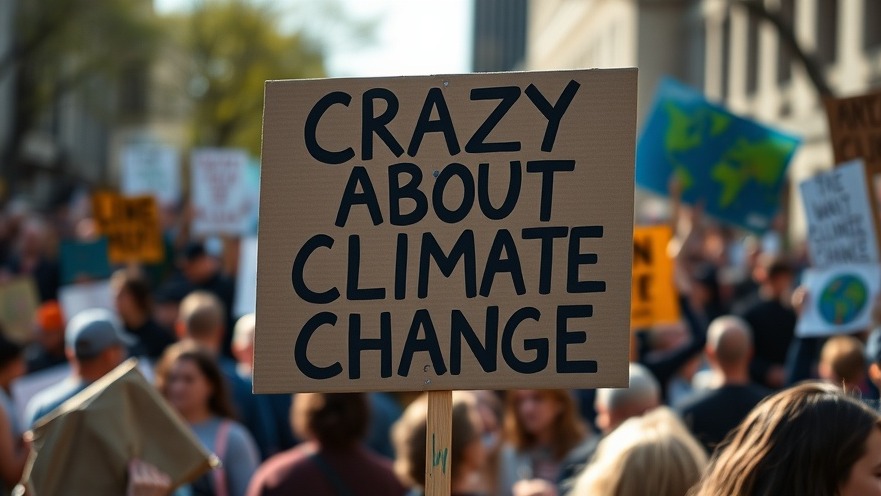
Raising Questions on Climate Change: Are We Past the Point of No Return?
In a recent exchange on Capitol Hill, Congressman Suhas Subramanyam directly confronted Dr. McCracken, a leading climate scientist, probing one of the most pressing issues of our time: Are we too late to combat climate change? With alarming weather events increasingly dominating headlines across national news outlets, this critical dialogue emphasizes the urgency of scientific research and its implications for future action.
In 'Suhas Subramanyam Asks Climate Scientist Point Blank If We Are 'Too Late' To Stop Climate Change', the discussion dives into critical climate issues, prompting deeper analysis on our part.
The Cost of Inaction: Financial Implications of Climate Change
Dr. McCracken highlighted that climate-related disasters are costing the U.S. tens of billions of dollars, which could escalate into trillions if preventive measures are not taken. He pointed out that the connection between ocean warming and weather patterns is becoming painfully clear. This relationship, as he explained, results in extreme weather situations, such as the devastating floods observed in Texas, Pakistan, and India—a reflection of global climate interdependency.
Understanding Ocean Warming: The Hidden Crisis
As ocean temperatures rise, the consequences extend beyond just warmer seas. The warm waters lead to greater moisture in the air, resulting in intense precipitation when combined with topographical features. This interplay creates severe flood risks, which communities are ill-prepared to handle. In light of the ongoing discussions, it becomes necessary to evaluate how much longer communities can absorb such shocks without incurring insurmountable damage. If we continue down this path, the burden will fall not only on individuals but the national economy at large.
The Role of Methane Emissions: Short-Term Solutions for Long-Term Impact
While the challenge of cutting CO2 emissions seems daunting, Dr. McCracken emphasized a more immediate opportunity: reducing methane emissions—often overlooked in climate dialogues. Methane, a potent greenhouse gas that contributes significantly to warming, has a much shorter atmospheric lifespan than CO2. By focusing on methane reduction, sectors like agriculture and fossil fuels could provide quick wins in addressing climate change. Such initiatives represent vital steps toward a more resilient and climate-friendly economy.
Climate Intervention: Exploring Viable Solutions
Despite the grim realities presented by Dr. McCracken, he offered glimmers of hope through climate intervention strategies. As technologies evolve, innovative approaches to reduce atmospheric warming must be explored. Holding discussions at the policymaking level ensures that viable paths forward are considered seriously. It calls on legislators to prioritize climate science and support initiatives that target greenhouse gas reduction aggressively.
The Importance of Science: A Call for Investment and Trust
Subramanyam raised concerns about recent trends of firing climate scientists and limiting funding for crucial research. The overall impacts of these actions are deeply troubling; reducing scientific inquiry directly undermines our ability to address climate-related crises effectively. Public trust in science is paramount as we navigate through complexities with significant national security implications.
Conclusion: A Call to Action for Policymakers and Citizens
In addressing climate change, every step counts, and decisions made today could dictate the quality of life for future generations. The time for deliberation has long passed, and with the insights shared by leading experts, both the government and the populace must rise collectively to combat this existential threat. The Capitol Hill discussion is an urgent reminder: investing in science isn't just a matter of academic merit—it's crucial for our survival.
For more insights and to stay updated on U.S. policies around climate change, I encourage you to engage with your local representatives and drive conversations in your communities. Together, we can make climate action a national priority.
 Add Element
Add Element  Add Row
Add Row 



Write A Comment